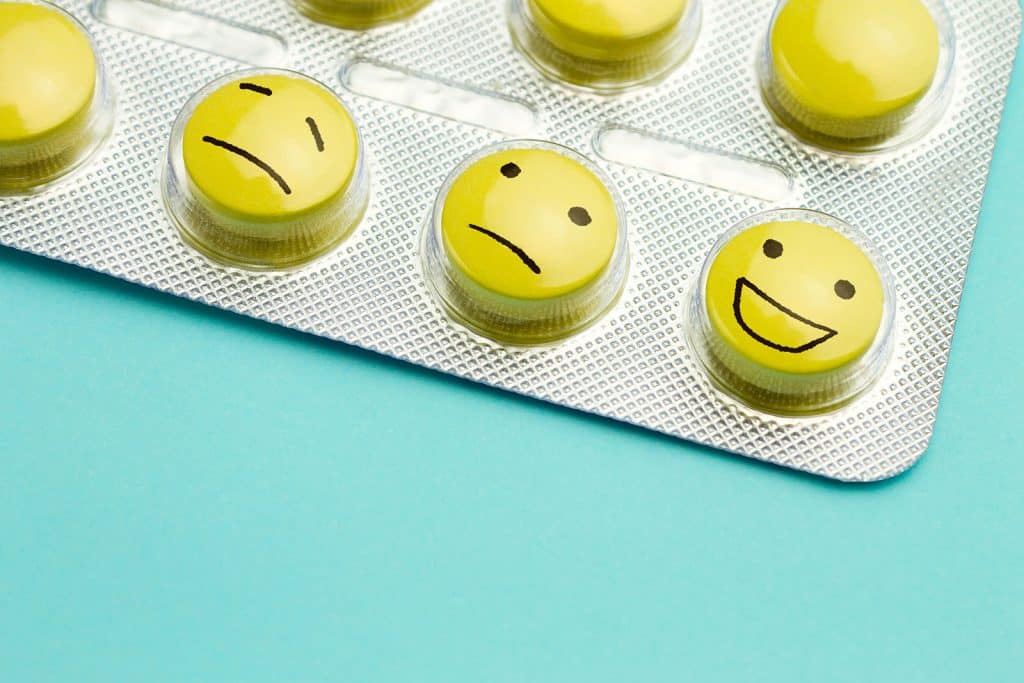In a perfect world, no one would ever experience depression or even so much as a low mood, but the world is far from perfect. And many people do suffer from depression. To put into perspective the breadth and scope of depression in the U.S., we need only look at a study published by the National Institutes of Health (NIH). According to researchers, an estimated 21 million Americans admitted to having at least one major depressive episode in 2020, with most saying the mental illness negatively impacted their social, personal, and professional life. To appreciate how this all-too-common mental illness can affect so many aspects of one’s life, it helps to know a little more about what it is and what triggers it.

Table of Contents
The Truth About What Causes Depression
The vast majority of depression people experience is a byproduct of life events that have triggered feelings of stress, loneliness, and isolation. While such events might trigger nothing more than a low mood in some people, which they can easily snap out of, they can trigger weeks and even months-long depression in others. In extreme cases, depression may even give rise to suicidal ideations, which is quite worrying given that these ideations often result in individuals eventually taking their own lives. And this is not a baseless conjectural statement. Moreover, it is a grim reality well substantiated in countless studies. One such comes from the Centers for Disease Control and Prevention (CDC), which found that roughly 12.2 million American adults seriously thought about committing suicide in 2020. Of those, 3.2 million planned a suicide attempt, and 1.2 million succeeded in ending their own life. Aside from life events, many of which are unavoidable, there are several more things that can put individuals at risk of suffering from depression, including
Genetics
We inherit many things from our parents, from skin and hair color to height and body type and everything in between. Sometimes, we even inherit their genetic shortcomings. Such is the case when it comes to depression, according to a Stanford Medicine study. According to researchers and scientists involved in the study, genetics play a role in 40% to 50% of cases involving severe depression. At least 10% of people in the U.S. will experience a major depressive disorder at some point in their lifetime, the same researchers and scientists also found.
Medical Conditions
Chronic illnesses can affect both our physical and mental health. One study published by the Cleveland Clinic found that individuals diagnosed with cancer, diabetes, Parkinson’s, and other chronic diseases are more likely to struggle with depression than someone who is otherwise healthy. The study also found that depression is a side effect of many medications commonly prescribed to treat such illnesses.
Personality Traits
When it comes to depression, we are, sometimes, our own worst enemies. Available data shows some people have personality types that make them more prone to feeling overwhelmed in the face of stress. And when this happens, many fall victim to depression.
The long and short of it is depression is a horrible mental illness that can drive many people to give up on many things, including the will to live. But all hope is not lost. There is no shortage of prescription-based antidepressant drugs on the market that can help individuals struggling with depression feel more like themselves again. Some of the ones commonly prescribed include the following selective serotonin reuptake inhibitors (SSRIs):
- Celexa
- Lexapro
- Prozac
- Paxil
- Zoloft
In addition to SSRIs, some physicians and psychiatrists prescribe serotonin and norepinephrine reuptake inhibitors (SNRIs) to those struggling with severe depression. The commonly prescribed ones include the following:
- Cymbalta
- Effexor
- Pristiq

Science Reveals What Antidepressants Do to the Brain
While psychological counseling with a licensed therapist can help many people suffering from depression, others have no choice but to take antidepressants to cope with day-to-day life. The most recent and up-to-date data shows physicians wrote nearly 71 million prescriptions for antidepressants in 2018, with 53% of those prescriptions written for SSRIs and a little over 9% written for SNRIs. There is no denying that these drugs work, but how they work and what they do in the brain are topics worthy of discussion and deeper understanding.
How SSRIs Combat Depression
Whether it be Celexa, Lexapro, Prozac, or another SSRI, they all do a pretty good job of combatting feelings of depression. These medications work by ramping up the production of serotonin in the brain. For reference, serotonin is a hormone and neurotransmitter that plays an integral role in regulating mood, sleep, and many other bodily functions. When someone takes SSRIs, the uptick in serotonin levels in the brain provides considerable relief from depression-related symptoms, some of which include
- Irritability
- Anhedonia
- Changes in appetite
- Difficulty sleeping
- Feeling anxious
- Feeling worthless or hopeless
- Intense feelings of sadness
- Low energy
- Unintended weight loss or weight gain
How SNRIs Combat Depression
Like SSRIs, SNRIs also ramp up the production of serotonin levels in the brain to help combat depression. But it does not stop there. It also ramps up the production of norepinephrine, a neurotransmitter that regulates energy, focus, and attention. Because of how it works in the brain to help ease depressive symptoms, SNRIs are also helpful in treating chronic pain and attention-deficit hyperactivity disorder (ADHD).
What Happens to the Brain When Someone Stops Taking Antidepressants?
What happens to the brain when someone stops taking antidepressants depends on the antidepressant they were on and how long they were taking it. For example, SSRIs can alter parts of the brain that affect serotonin receptors, which puts individuals at risk of suffering from SSRI discontinuation syndrome when they stop taking the drugs. SSRI discontinuation syndrome can reduce serotonin levels in the brain and trigger what many describe as flu-like symptoms. The condition can also cause insomnia, sensory disturbances, nausea, and even sensory disturbances.
The alteration to the parts of the brain that affect serotonin receptors and the resulting symptoms that occur after someone abruptly stops taking SSRIs is temporary. Generally speaking, it takes 6 to 8 weeks for the brain to return to normal and for all other symptoms to dissipate after someone stops taking SSRI drugs. Abruptly quitting SNRIs triggers SNRI discontinuation syndrome. And it affects individuals in the same way as SSRI discontinuation syndrome. The only difference is the symptoms are mild by comparison and generally last only 1 to 2 weeks. The time it takes for the brain to return to normal after someone stops taking SNRIs is about the same, roughly 6 to 8 weeks.
In summary, millions of people in the U.S. struggle with depression, and many are taking antidepressant drugs to help combat their depressive symptoms. Contrary to popular belief, SSRIs and SNRIs prescribed to treat this horrible mental illness are generally safe when taken as prescribed. While they do, indeed, change some areas of the brain responsible for the production of serotonin, such changes are only temporary. Multiple studies show the brain naturally heals itself a few weeks after an individual stops taking SSRIs or SNRIs. To learn more about these drugs and other ways to treat depression, consider speaking with a Recreate Life Counseling associate today.
Published on: 2022-12-24
Updated on: 2024-02-01



